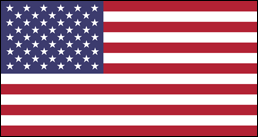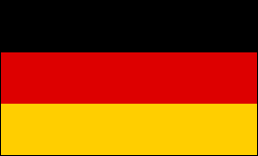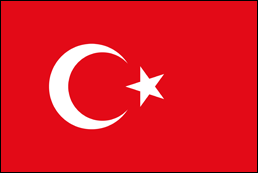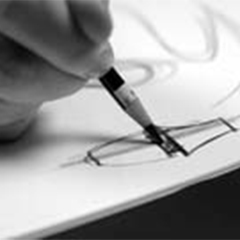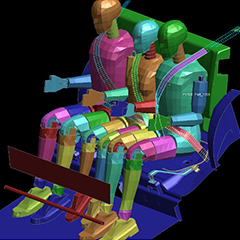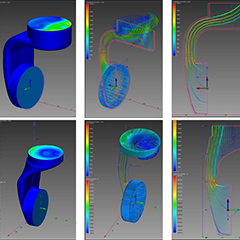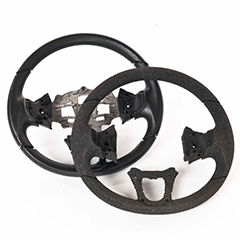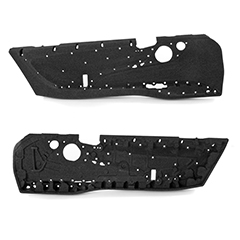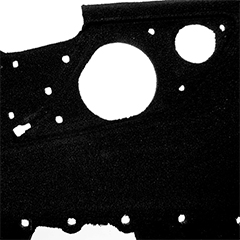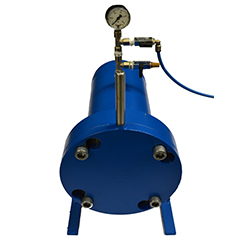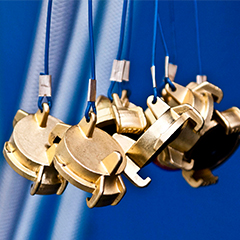Innovation
We continuously develop products and applications that accelerate customer and environmental benefit.
Design
Our engineers work with you in a two-step design approach, meeting your performance criteria as well as to design for manufacture.
We perform feasibility studies on initial part designs to evaluate moulding feasibility and modification recommendations such as; wall thickness, undercuts, mechanical core pulls, fill gun number, size and positions, number of ejectors and positions, shrinkage estimation, cavity orientation, micro venting management, passive steaming traps, insert position, installation and potential ARPRO grade nomination.
FEA
The ARPRO static and dynamic performance datasheet allows the construction of accurate material models for explicit Finite Element Analysis (FEA) codes, predicting performance under dynamic load such as crash or packaging drop tests.
Our proprietary ARPRO material models take the optimisation of the ARPRO components a step further with our capability to evaluate the behaviour of hybrid assemblies whilst predicting and countering the risk of undesired failure.
Our FEA methodology for designing production tools for complex applications like automotive seat ramps enables you to save 30% of cost and time and also helps to achieve tight dimensional tolerances, control warpage and eliminate costly secondary operations.
CFD
Using our ARPRO material models to perform CFD (Computational Fluid Dynamics) analysis brings tangible benefits through optimisation of component geometry resulting in an optimised flow profile and reduced pressure drops in air channel applications, such as heat exchangers.
Prototyping
ARPRO prototypes are suitable for performance validation tests (ageing, crash, temperature resistance, assembly, form and function testing) and cover the complete ARPRO moulded density range, including application specific grades and colours. Our years of experience have made us proficient in prototype design, complex assembly and sub-assembly with inserts.
We guarantee short development and delivery times without prototype tooling costs.
Production
We perform:
Process design optimisation covering expansion, pressurisation, moulding, oven treatment, secondary operations, material transfer, quality inspection procedures and PFMEA (process failure mode effect analysis). We use mini pressure tanks, small portable pressure tanks, temperature sensors, pressure sensors, heat visualisation cameras and telemetric systems.
Equipment configuration optimisation covering pressure tanks, pre-expanders, moulding machines, accessories (i.e. fill guns, sensors, filters, rotating discs, etc.), ovens, fluidising beds, heating tanks, stabilisation and control fixtures and measurement equipment.
Utilities settings covering steam pressure, compressed air pressure, water temperature and pressure and vacuum pump pressure.



